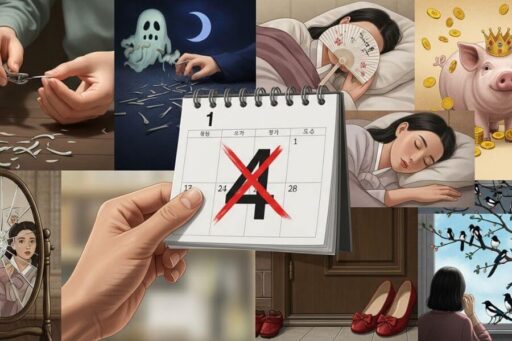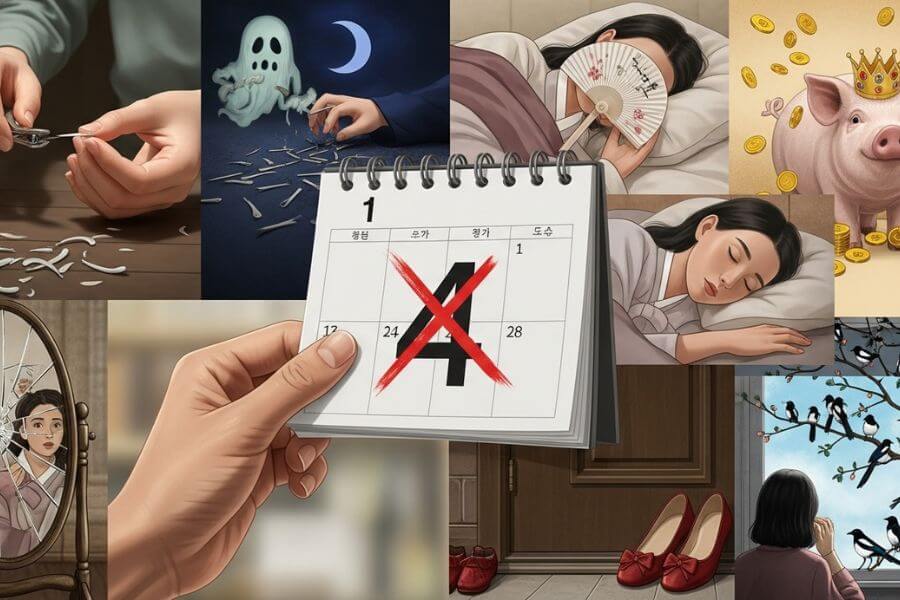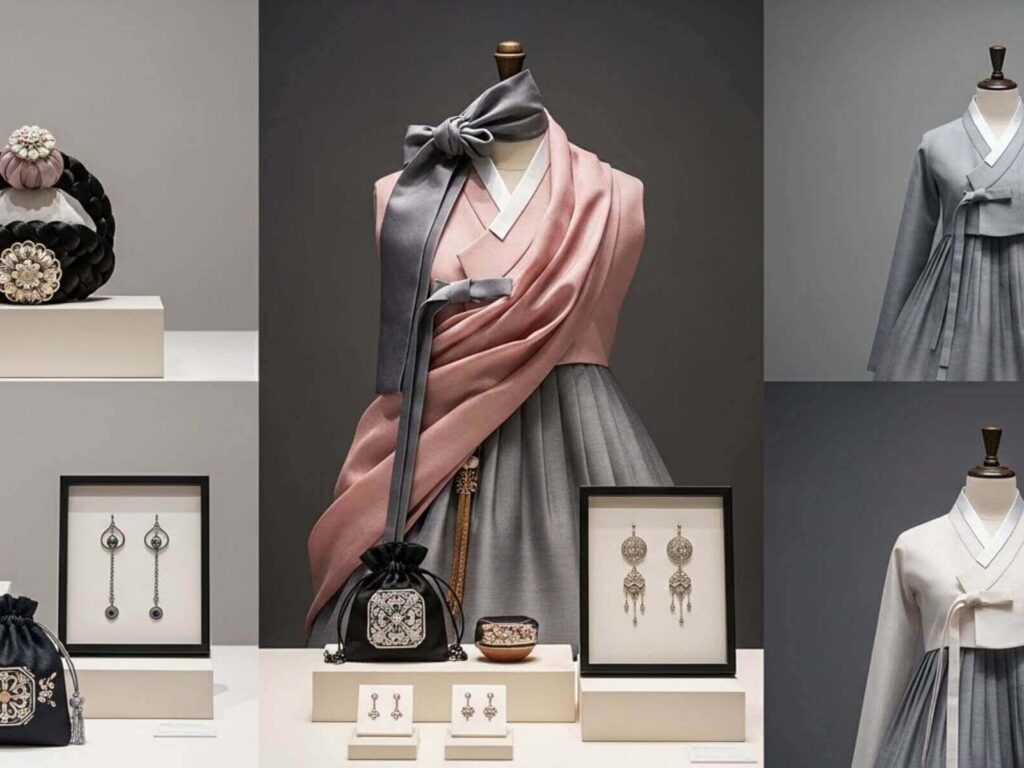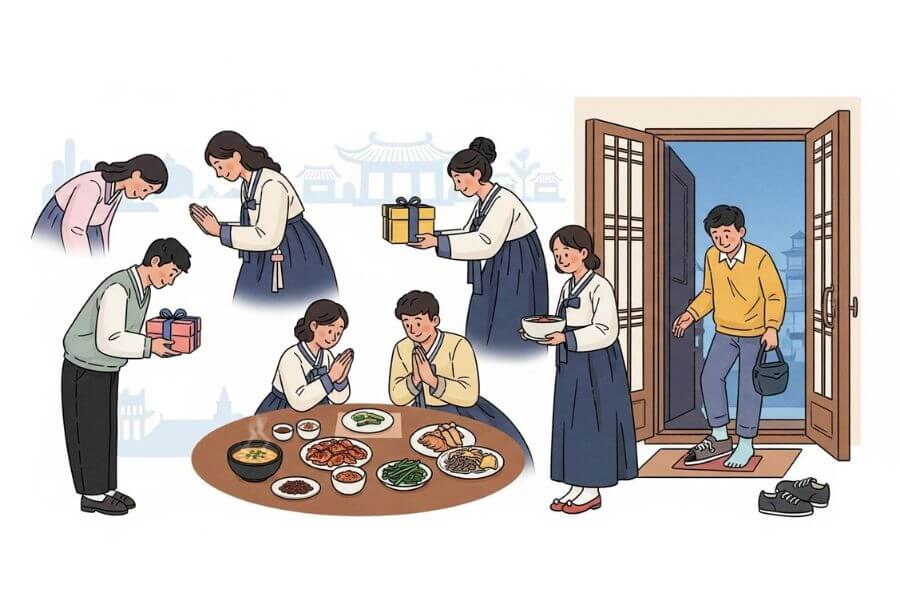If you’ve ever spent time in Korea or have Korean friends, you might have noticed some unusual habits and little “rules” people follow. At first glance, some of them might seem a bit quirky, but these aren’t just random customs. They’re superstitions that have been passed down for generations. Some come from old folklore, some from history, and some just stuck around because, well… they work socially! What’s fascinating is that even in 2025, in one of the world’s most high-tech countries, many Koreans still quietly follow these beliefs.
Whether you’re visiting Korea, living here, or just curious about Korean culture, these superstitions give you a fun and sometimes surprising peek into Korean life. So, let’s check out the top 10 Korean superstitions many people still believe today and see why they’ve lasted so long.
1. Writing Someone’s Name in Red Brings Bad Luck
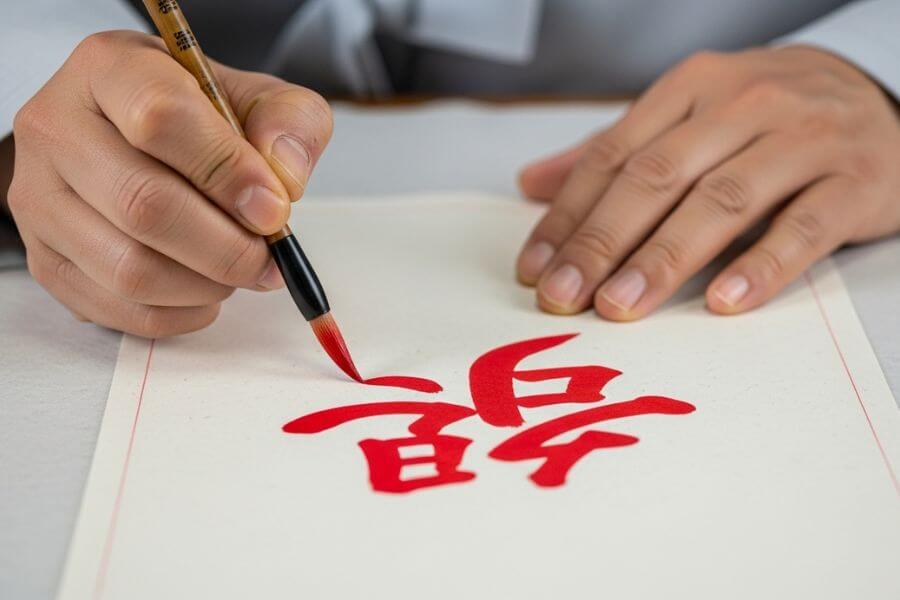
One of the most famous Korean superstitions is that writing someone’s name in red ink is bad news. In the past, red ink was used in official documents to mark the names of people who had passed away, so it became associated with death and misfortune. Even today, if you write a friend’s or loved one’s name in red, you might get a shocked reaction. Some say it “shortens your life,” while others just think it’s really disrespectful. Schools, offices, and even casual letters usually stick to black or blue ink. So, next time you’re writing in Korea, avoid red; it’s safer and socially polite!
2. Fans Can Cause Death if Left on Overnight

This one might sound weird to foreigners, but fan death is a very real superstition in Korea. The belief is that sleeping in a closed room with a fan running all night can kill you. While science says it’s not true, the superstition is still strong, especially among older Koreans. It started in the early 1900s when fans were new and people didn’t understand them. Rumors said fans could suck out oxygen or cause hypothermia. That’s why many fans in Korea now have timers or auto-shutoff features. Even if younger people joke about it, most still turn off fans at night “just in case.”
3. Number 4 is Bad Luck

In many countries, 13 is unlucky. In Korea, it’s number 4. Why? Because the word for four (sa) sounds exactly like the word for death (sa). This superstition is everywhere. Hospitals, apartments, and hotels often skip the fourth floor. Elevators might go 1, 2, 3, F, 5, where “F” is the fourth floor. People even avoid phone numbers, license plates, and addresses with multiple 4s. Even if younger Koreans don’t take it too seriously, the discomfort around the number persists. Some things just stick culturally.
4. Whistling at Night Attracts Ghosts
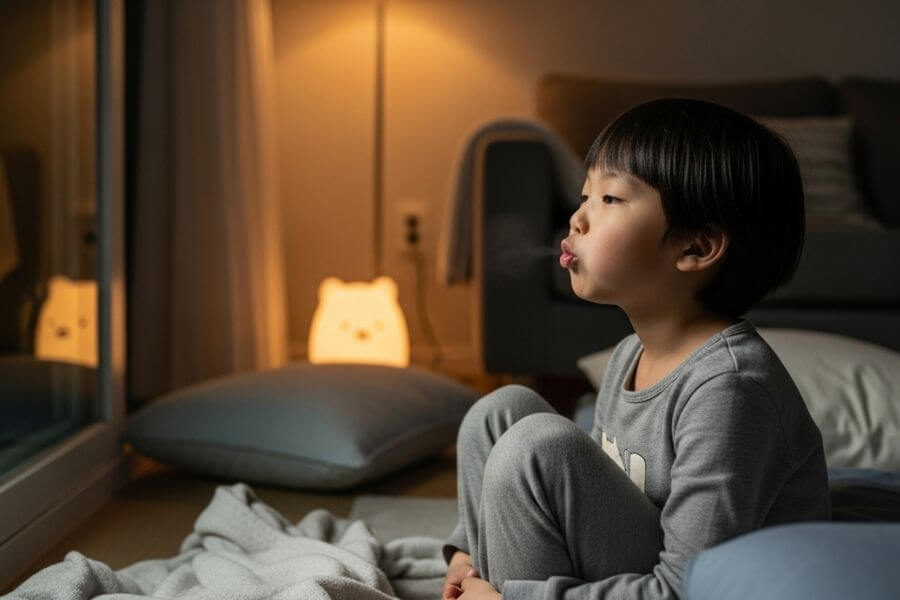
Here’s a spooky one: Koreans are taught not to whistle at night. The belief is that it can attract ghosts, evil spirits, or even snakes in older times. Before electricity, whistling at night was risky because it could attract wild animals. Over time, it became a supernatural warning passed from parents to kids. Today, many people still avoid it at night, even if just out of habit. If you hear someone say, “Don’t whistle at night!” in Korea, it’s both playful and serious advice.
5. Shaking Your Legs Means You’re Shaking Away Good Luck
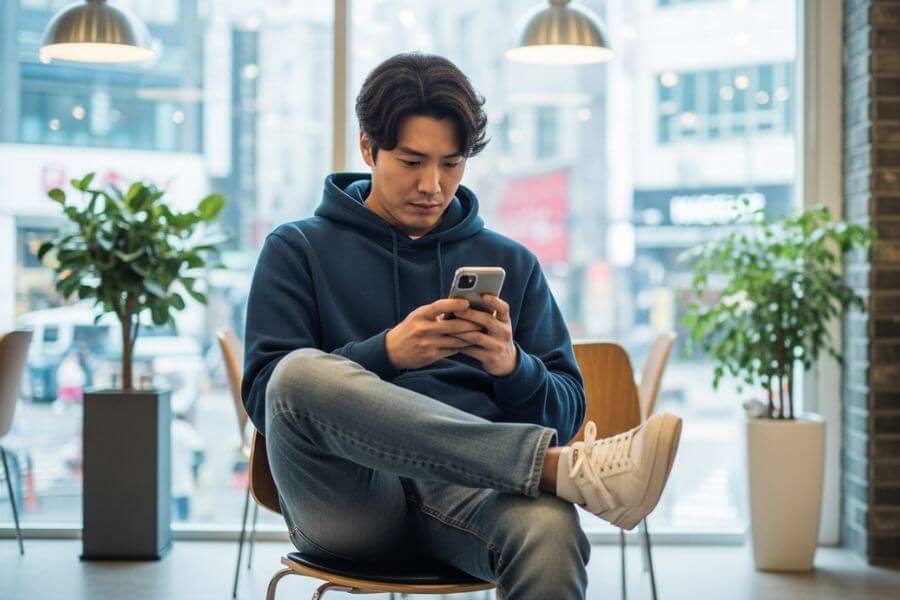
Ever notice someone bouncing their legs under the table? In Korea, it’s more than just a nervous habit. People believe that shaking your legs can make your luck, wealth, or success slip away. You might hear: “Stop shaking your luck away!” This superstition probably comes from Confucian ideas about calmness, discipline, and respect. Even if it’s mostly symbolic, many Koreans stop automatically when reminded. Old habits die hard!
6. Eating Seaweed Soup Before Exams is Bad Luck
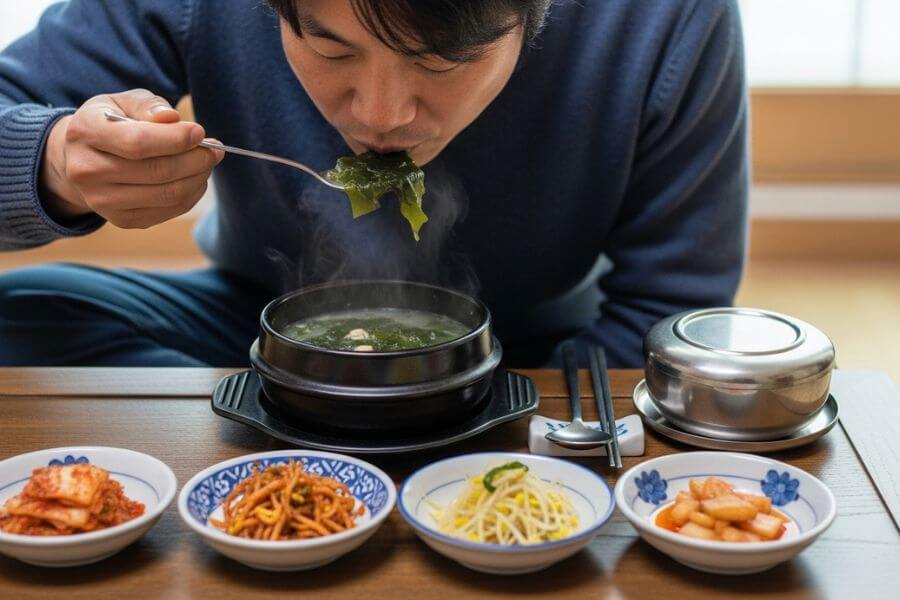
Seaweed soup (miyeokguk) is a traditional birthday dish symbolizing health and good fortune. But before an exam? Not a good idea. Students avoid it because the slippery seaweed is believed to make your answers “slip away.” Instead, they eat sticky foods like rice cakes or taffy, hoping the answers “stick” in their minds. Even though it’s symbolic, this superstition is taken seriously by students and parents during exam season.
7. Dreaming of Pigs Brings Wealth
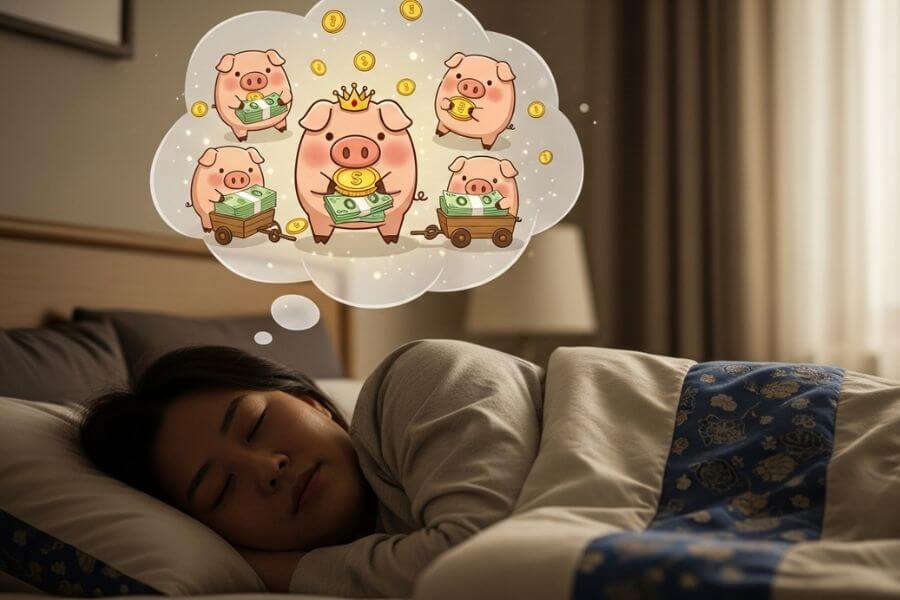
This one is fun and lucky! In Korea, pigs symbolize wealth, abundance, and prosperity. They were once valuable farm animals, and dreaming of pigs is considered a sign of good fortune. Some people even buy lottery tickets after a pig dream! The bigger and healthier the pig in your dream, the bigger your luck is supposed to be. Golden pigs? Even better. Koreans love sharing dreams like this, hoping for a bit of extra luck.
8. Cutting Nails at Night is Dangerous
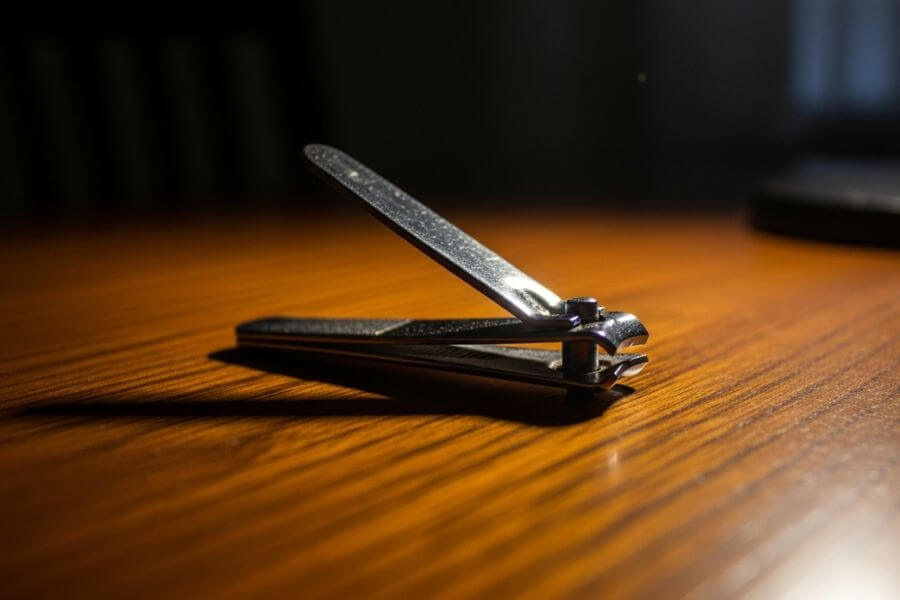
Another superstition from childhood: don’t cut your nails at night. The belief says that trimming nails after sunset invites evil spirits. A more practical explanation is that cutting nails in dim light could cause injury. Still, many Koreans avoid doing it at night, even adults, because it’s a habit passed down from their parents. It’s one of those small, harmless superstitions that sticks with you.
9. Giving Shoes to Your Partner Brings Breakups

Here’s a dating superstition: giving shoes to your boyfriend or girlfriend is believed to make them walk away from you, literally. Couples often avoid gifting shoes on anniversaries or birthdays. If they do, the recipient might pay a tiny symbolic amount (like 1,000 won) to “neutralize” the bad luck. It’s playful but taken seriously enough that many couples follow this rule. Love is complicated, even with superstitions.
10. Rain on Your Wedding Day is Good Luck
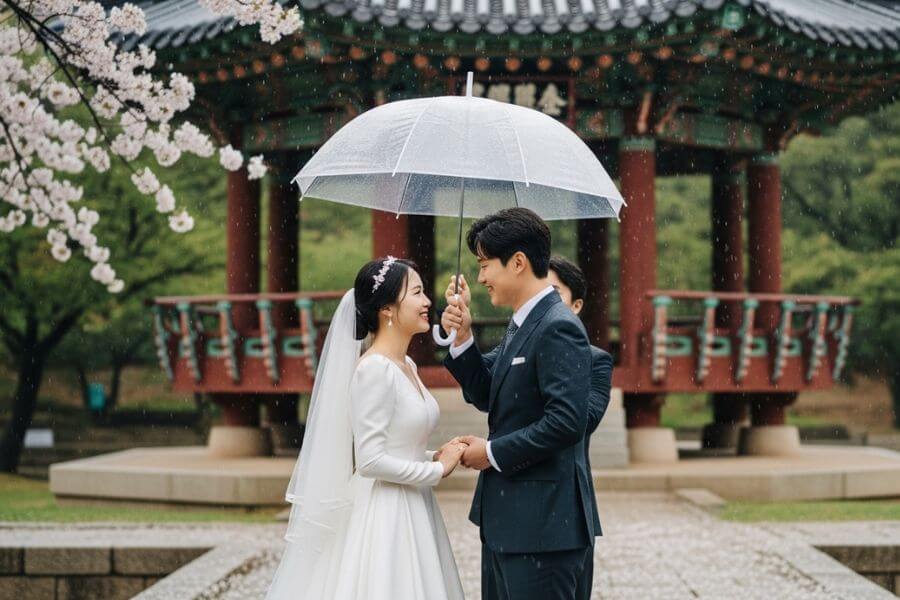
This is one superstition everyone can smile about. In Korea, rain on your wedding day is considered a blessing. The idea is that rain cleanses and nourishes, symbolizing a fresh start and harmony for the marriage. Even if it rains and messes with photos or outdoor plans, family members often reassure couples that it’s a lucky sign. Many couples actually embrace it as a meaningful part of their special day.
Conclusion
Korean superstitions aren’t just old stories; they’re woven into everyday life. You see them in conversations, family habits, pop culture, and even small daily actions. Whether it’s avoiding red ink, skipping seaweed soup before exams, or celebrating a pig dream, these beliefs show how past and present mix in modern Korea. So if you find yourself following a few of these superstitions or laughing at them, you’re getting a real taste of Korean culture. And maybe, just maybe, you’ll start believing in a little luck yourself.
